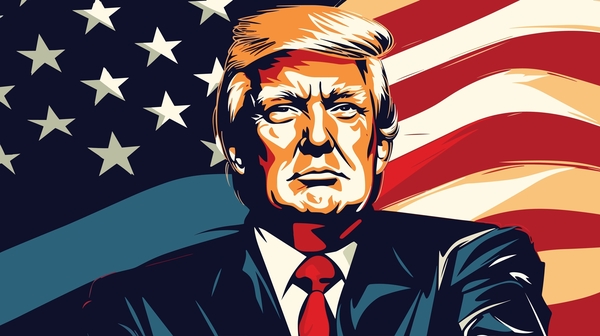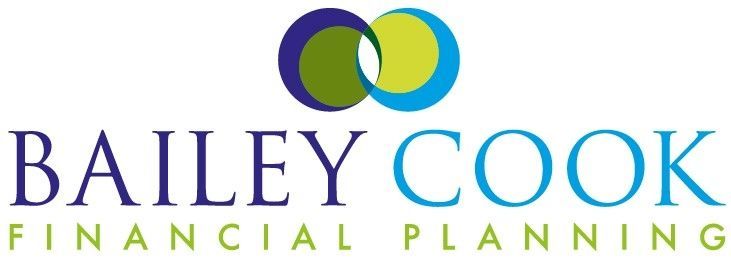News

Top Trump
Monday 25th November 2024
If you have ever played Top Trumps, the card game, the idea is to win all the cards and outscore your opponents. Donald Trump certainly did just that in the recent US election. Not only did he win the presidential race decisively, but also the Republicans won both the House of Representatives and Senate within Congress which means it will be much easier for him to pass new laws, as Congress needs to approve any such laws.
It is clear he will cut taxes, deregulate the US, spend on infrastructure, put American interests first, and use the Standard & Poors (S&P) 500, the US stock market, as a key measure of his presidency. No wonder stock markets responded positively to the news he had won with the S&P 500 up 3.7% and US Smaller Companies up 6% on the news. If Trump is successful, it is likely the US will remain a positive place to invest. Lower taxes and fewer regulations are business friendly leading to stronger profits. The America first mantra comes at a cost for the rest of the world though as he is set to impose tariffs that will hurt non-US companies, especially the Chinese with an expected 60% tariff on their goods and 10% to 20% on the rest of the world. The level of spending and stronger economic growth will revive concerns over inflation. The America first narrative will also have important consequences for Ukraine, and even Taiwan where their defence may not be seen to be as strategically important as in the past. The erratic nature of his policy making will also create greater volatility and some of his initial appointments have caused some concern. Incoming “government efficiency” executors Elon Musk and Vivek Ramaswamy are in place to save $2 trillion. A few investment houses have commented that the order in which Trump acts will have an impact as cutting expenditure before pro-growth policies, such as tax cuts, take effect could be negative. Putting this together the best way to describe the investment environment with Trump is higher risk and higher reward
One aspect many of you have asked is about Trump’s stance on energy transition and the obvious impact this may have on Sustainable Investment Funds. Indeed, another of his provocative appointments has been Chris Wright as his energy secretary. Wright is currently Chief Executive of oilfield services group Liberty Energy, and his appointment puts a fossil fuel titan at the heart of the new US government. It confirms fears the Trump administration will be no friend to the decarbonisation push and a desire to increase the supply of oil.
Ironically, during Trump's first term his rhetoric was very strong on supporting coal and slowing down investment in renewables. What actually happened was that solar and wind generation increased by 143% and 49% respectively, and coal generation reduced by 36%! Not what you might expect.
So why did this happen?
1. There is significant division of power between federal and state governments, and through his first term many state governments continued to incentivise renewables expansion.
2. Corporate ambitions continued to grow. Net zero commitments continued to be adopted by companies incentivising private and public investment.
3. It made economic sense. As the costs of wind and solar continued to fall it made economic sense for businesses and governments to invest in these projects rather than more expensive new fossil fuel projects.
Is anything different this time?
1. Renewables continue to be cheap forms of new electricity generation.
2. Companies are still moving in right direction- we have seen the likes of Microsoft hold the line on their ambitious net zero targets whilst their energy consumption goes through the roof due to AI related data centres being built. This has resulted in political pressure on states to provide clean energy to attract these businesses as well as significant private funding from the businesses themselves.
3. Increasingly tight regulations around the world and the focus on supply chains will help sustain companies’ commitments. If US firms want to maintain global markets, particularly in Europe, they will have to continue to think about their sustainability strategy (including net zero) regardless of domestic policy.
4. The Inflation Reduction Act (IRA) is in place and is showing real economic benefits, including job creation, interestingly much more tilted to Republican states. Texas now generates 20% of US clean energy and new capacity under construction is more than the next 5 states combined. Much of the investment earmarked by the IRA bill has gone to swing states, now held by Trump. The Atlas Public Policy group showed $63bn, or nearly half of the capital assigned under the Act, has flowed to seven states – Pennsylvania, Arizona, Georgia, Michigan, Nevada, North Carolina and Wisconsin. It may be that economic reality will ultimately triumph over anti-climate change rhetoric.
5. Economic considerations may force Trump’s hand. Research from the Net Zero Industrial Policy Lab found that full repeal of the IRA would, in the most likely scenario, “harm US manufacturing and trade and create up to $80bn in investment opportunities for other countries, including major US competitors like China. US harm would come in the form of lost factories, lost jobs, lost tax revenue, and up to $50bn in lost exports.” Goldman Sachs points out the bill has delivered around $3trillion in clean energy spending.
The problem with promising a long-term oil boost is that the long-term outlook is inescapably tied to climate change and the green energy transition. Even if Trump undoes international climate agreements, renewable technologies will continue to be developed, and they are gradually making renewable energy cheaper. Whilst the Trump rhetoric will be more supportive to fossil fuels and his administration may reduce some federal support for renewables there are lots of countering drivers that should help ensure the energy transition continues to move in the right direction. Just as it did in his first term.
We still hold the belief that sustainable funds will in the long term provide good investment returns as the world transitions to clean energy and suffers more with what seems to be daily climate led disasters.
UK inflation surprises but still heading down
UK inflation increased sharply last month to an annual 2.3% from the previous month’s 1.7%. Both headline and core inflation (removing volatile food and energy) were above expectations, which increased inflation concerns. This led initially to Government Gilt (Bond) yields (interest rates) increasing , which then fell back following comment from Bank of England (BoE) deputy Dave Ramsden, who said UK inflation was “bumpy” but indisputably heading down. He even warned that sharper rate cuts might be needed if wages cool too quickly. Markets took this as a signal for lower rates.
We suspect the government’s autumn budget played a role in the BoE’s view due to complaints about national insurance increases and how they might hurt businesses and jobs leading to lower wage rises and reduction in taking on staff. Ironically, job suppression could be a blessing for the BoE, who have been concerned about a tight employment market since the pandemic. Weaker wage prospects will allow the BoE to cut rates more aggressively. Yields fell even further on Friday after October retail sales and the UK’s purchasing managers’ indices (PMIs) both came in significantly weaker than expected. That suggests a tough road ahead for businesses, causing yields and the value of sterling to fall. But the yield and currency effects pushed up UK shares as they make Britain cheaper for overseas investors.
That brings us back to the biggest unknown – what Trump will do and what effect that will have? This is uncertain so you could wait sat in cash, but not being invested could mean missing out on significant returns and rallies that often happen when you least expect them. In this particularly uncertain environment, patience and diversification, the spreading of risks and rewards, is essential, hence our preference for the Managed Portfolio Services provided by well-managed teams of experts.



